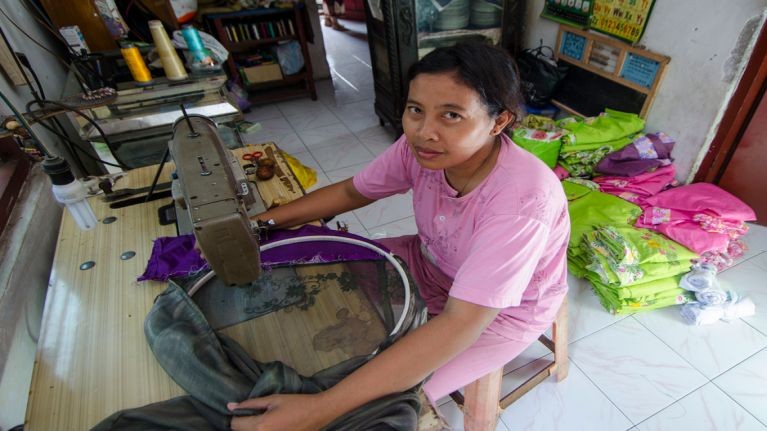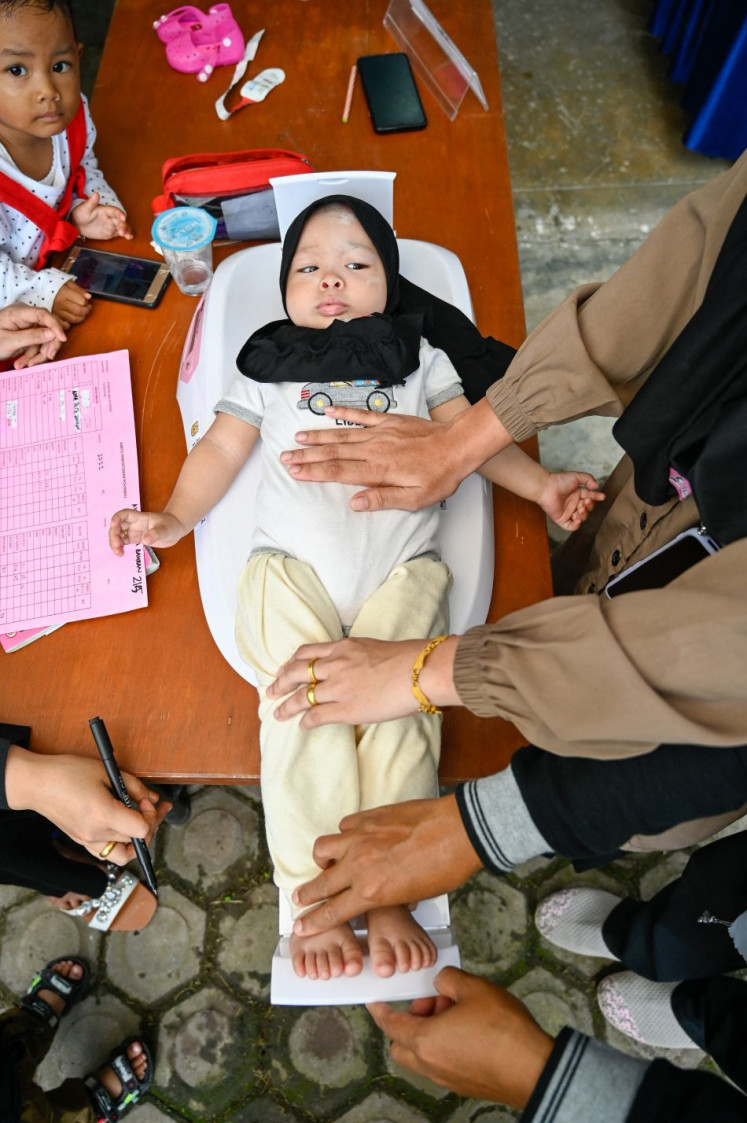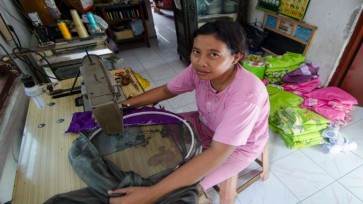Popular Reads
Top Results
Can't find what you're looking for?
View all search resultsPopular Reads
Top Results
Can't find what you're looking for?
View all search resultsThe ‘other’ workers’ tale: Women home-based workers in Indonesia
Home-based workers are predominantly workers without formal contracts, meaning they endure unstable income, low wages, no insurance and inadequate working conditions.
Change text size
Gift Premium Articles
to Anyone
T
he pandemic has given many the luxury of working from home. But not everyone has the option of doing this with a sustainable income, decent working space and secured social protection month by month. There are “other” workers who actually worked from home long before the pandemic but with different working circumstances.
So, who are they?
They are home-based workers (HBWs), defined by the International Labour Organization (ILO) as “workers who are self-employed or in the putting-out system”. In Indonesia, the Micro, Small and Medium Enterprises (MSMEs) Law categorizes HBWs as informal workers, while the home industry guideline from the Women's Empowerment and Child Protection Ministry classifies them as cottage industry workers.
But, whether self-employed, in the putting-out system or employed in a cottage industry, HBWs are extremely vulnerable. For one, they are not defined in the Labor Law, and Indonesia has not yet ratified the 1996 ILO Convention No. 177 on home work. Basically, HBWs are predominantly workers without formal contracts, meaning they endure an unstable income, low wages, no insurance and inadequate working conditions.
Indonesian HBW Zaenab acts as a facilitator who supports the Women's Empowerment and Child Protection Ministry’s program for women HBWs in Rembang regency, Central Java. She began her role in 2016 and is among those who continue the facilitation role today.
Zaenab does not give up her service “because the work is not finished, there is still much to be done.”
As a facilitator, Zaenab understands personally the challenges and needs of her fellow women HBWs in navigating livelihood strategies. This is important because her profile as a woman and a HBW enhances her connection to the program members.



















